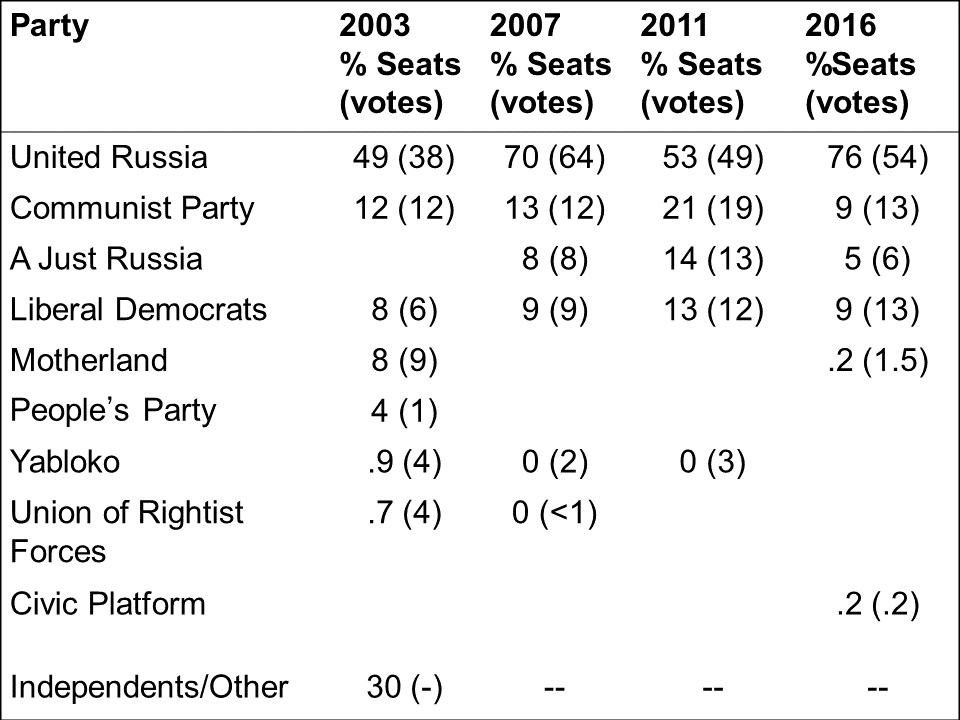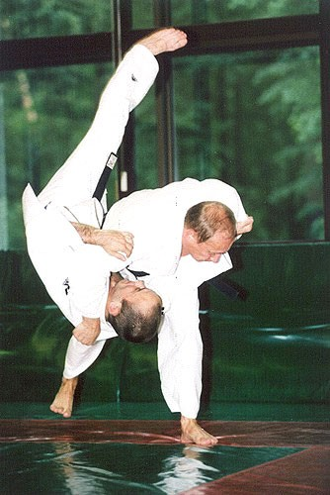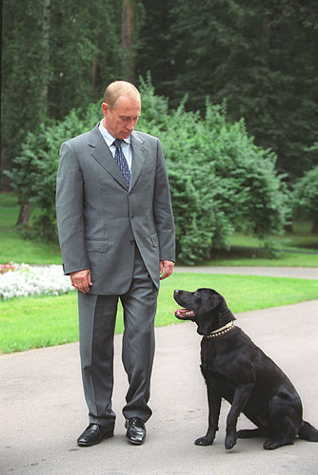Nondemocratic Regimes (O' Neil)
- Personal and Monarchical Rule
- Military Rule
- One-Party Rule
- Theocracy
- Illiberal (hybrid)
Regime Types (V-Dem)
- Liberal democracy
- Electoral democracy
- Electoral autocracy
- Closed autocracy
Parties and democracy
- Locus of programmatic politics
- Key to representation of common interests
- How do we explain parties?
Hale’s Political Market Perspective
-
Candidate as consumer
-
Party as supplier of goods and services that candidates use to get elected
- Organization
- Reputation
- Material resources
- Electoral know-how
Level of production depends on:
- Supply of the good
- Demand for the good
- Available substitutes
- If cost of good goes up too much, consumers turn to substitutes
“Party Substitutes” in Russia
-
Examples
- Regional political machines
- Politicized financial-industrial groups
-
Origins
- Soviet legacy
- Transition policies–devolution, privatization
Party substitutes help candidates at least as much as parties
Russian Party Development
-
In 1990s Russian politics not party-based
- President not partisan
- 80% provincial legislators nonpartisan
- 97% governors nonpartisan
- 50% Duma nonpartisan
-
But by 2000s distinct parties had become common in Russian politics
Today’s Party System
- Parties have distinct political orientations and platforms
- Pro-Putin: United Russia Party
- Left: Communist Party, A Just Russia
- Conservative: Yabloko Party, Union of Right Forces
- Nationalist: Liberal Democratic Party of Russia, Rodina (formerly ‘Motherland’ Party)
- Parties behave coherently in Duma
- Voters know the parties
- 50% express party loyalty
- Vote along party lines
- United Russia increasingly dominant

How Did United Russia Consolidate Power?
- Undercutting party substitutes
- Taming through electoral reform
- Corralling support
Undercutting Power of Party Substitutes

- Ending gubernatorial elections
- Legal action against politicized corporations
Taming Party Substitutes Through Electoral Reform

- In 2007 elections, Duma elected entirely through closed list
- PR gives parties control and encourages a competitive party system
Corral Substitutes Into Favoring Pro-Putin Parties

Nondemocratic Regimes in the Middle East
-
Absolute monarchies
- e.g. Saudi Arabia, UAE
-
Constitutional monarchies with parliaments
- Parliaments not mere facades
- But flaws make them ‘partially free’
- e.g. Jordan, Kuwait
Why Less Democracy in the Middle East?
- Culture
- Lack of secularism = impediment to democracy
- All Muslim-majority countries do poorly
- Oil curse
- Arab countries do significantly worse even among countries with large Muslim population
- Non-Arab Muslim countries ‘over-perform’
- Which of these is right?
- Surveys show continued support for democracy among citizens of ME countries
Discussion
- Levitsky & Way